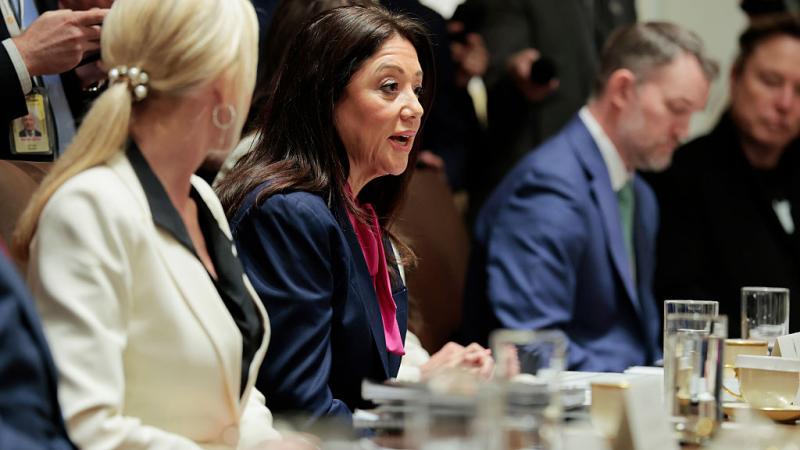DOJ memo insists AG Garland can't face prosecution for contempt over Hur interview tape
Hur declined to bring charges in part due to his assessment that "Mr. Biden would likely present himself to a jury, as he did during our interview of him, as a sympathetic, well-meaning, elderly man with a poor memory."
An internal memo from the Department of Justice's Office of Legal Counsel (OLC) has argued that Attorney General Merrick Garland cannot face prosecution for contempt of Congress over his refusal to turn over the audio tape of special counsel Robert Hur's interview with President Joe Biden.
House Republicans have issued a subpoena demanding that Garland turn over the audio recording of the interview, which he has refused to do, highlighting that Biden had claimed executive privilege over the recording.
The House advanced a contempt resolution in a 208-207 vote on Wednesday and a final vote is expected to take place Wednesday evening.
The OLC memo noted that the DOJ has never pursued contempt charges against an executive branch official when a president has exercised such privilege over the disputed material.
"Consistent with this longstanding position, no U.S. Attorney has pursued criminal contempt charges against an Executive Branch official asserting the President’s claim of executive privilege," the memo reads, according to The Hill.
"For nearly seven decades and across presidential administrations of both parties, the Executive Branch has taken the position that the criminal contempt of Congress statute... does not apply to Executive Branch officials who do not comply with a congressional subpoena based on a presidential assertion of executive privilege," it also said.
The OLC noted that the DOJ has provided a transcript of the interview to the Republican-led committees, before asserting that "[t]he audio recording will not reveal any information relevant to the committees’ stated needs that is not available in the transcripts."
Hur's interview with Biden addressed his handling of classified materials. Notably, Hur declined to bring charges in part due to his assessment that "Mr. Biden would likely present himself to a jury, as he did during our interview of him, as a sympathetic, well-meaning, elderly man with a poor memory."
“Based on our direct interactions with and observations of him, he is someone for whom many jurors will want to identify reasonable doubt. It would be difficult to convince a jury that they should convict him-by then a former president well into his eighties-of a serious felony that requires a mental state of willfulness,” Hur's report stated.
Biden, for his part, has disputed Hur's assessments and insisted "[m]y memory's fine."















